Latin America’s Rightward Shift Continues In Honduras
Honduras’ newly elected president, Nasry Asfura of the conservative National Party, was sworn in on January 27, 2026. The election, held on November...
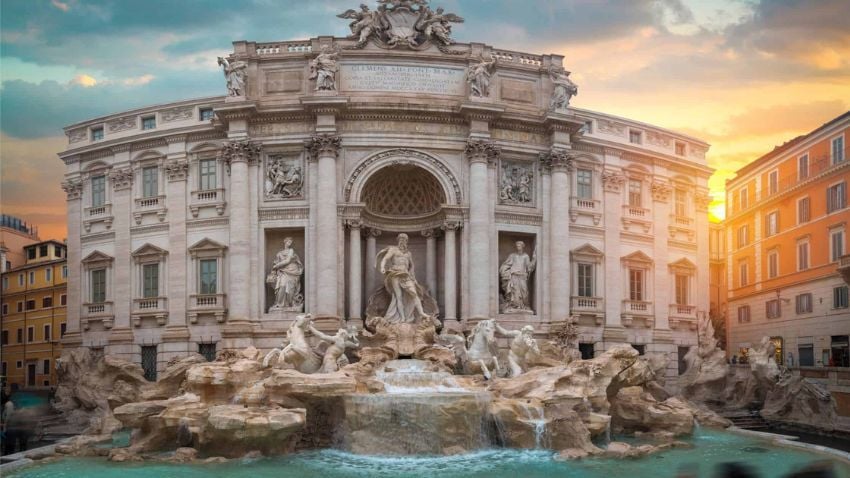
5 min read
Italy is located in Southern Europe and is a peninsula extending into the central Mediterranean Sea, northeast of Tunisia. Comparatively speaking, it is almost twice the size of Georgia and slightly larger than Arizona.
Italy borders Austria, France, San Marino, Slovenia and Switzerland and is an 8-hour train ride across borders from Germany. Inside the capital of Rome, you will find Vatican City.
You will find mostly rugged and mountainous terrain, with the highest point being Mont Blanc and the lowest being the Mediterranean Sea.
Italy has a population of 61 million people, with the official language being Italian.
Rome is the capital of Italy, and there you can visit The Coliseum, The Roman Forum, the Pantheon, Trevi Fountain and Piazza Navona.
Related content: How To Obtain Residency In Ireland To Live And Work
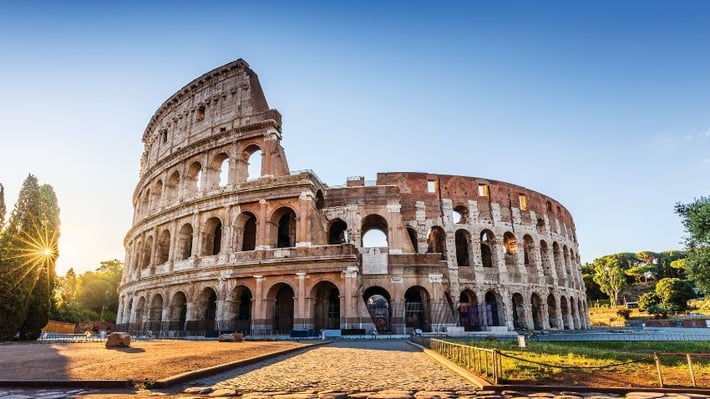
The Coliseum, Rome, Italy
While you are there, you also must visit Vatican City, just to say you’ve visited a new country. In the Vatican City are Saint Peter’s Square, Saint Peter’s Basilica, and the Sistine Chapel.
Other must-visit cities are Florence, the art city; Venice, the romantic city; Cinque Terre, and so much more.
Here are the best strategies for getting both temporary and permanent residency in Italy.
Where temporary residency visas are available for renewal, they must be renewed with a validity of at least sixty days. The following are the types of temporary residency visas offered by the Italian government:
Related content: Malta Residency Program
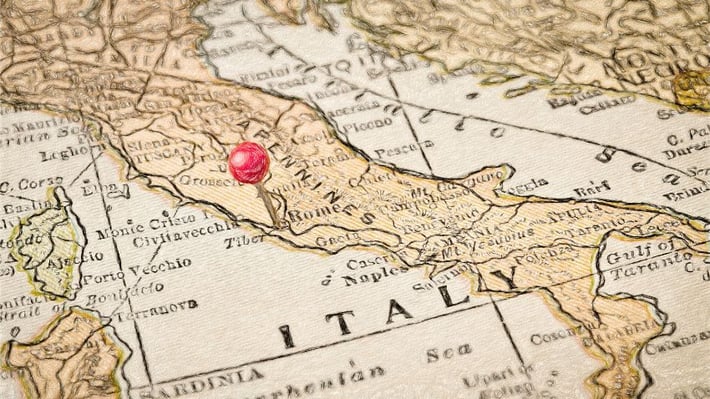
Map of Italy
If you are not a member of the European Union and wish to work seasonally in Italy, then you have to acquire both work authorization and a seasonal employment visa prior to going to Italy. Only a limited number of these visas are issued yearly, so it is best to apply early.
Your prospective Italian employer generally files the authorization to work paperwork on your behalf. Should that be approved (there is a maximum number of allowed seasonal workers, so if the quota is already filled, your authorization to work will be rejected), then they will send word to your local Italian consulate, and you will be able to get your seasonal work visa there. You will also need to apply for a residency permit once you are in Italy.
Related content: The Basics Of How To Get A Second Passport Or A Second Residency
This visa is for individuals with full-time employment and requires your employer to file the paperwork for a work permit before you apply for the visa. Once you arrive in Italy, you must apply for a residence permit. This visa is valid for either a period of one or two years and can be extended so long as you continue to have employment.
The advantage of the skilled worker visa is that it falls outside the quota system that limits how many workers may come to Italy to work in a given calendar year. A skilled worker must have a university degree, earn a salary of at least €25,000 ($24,913 USD) a year, and have an employment contract for a period of at least one year. After entering Italy, you must apply for a residence permit, and the Territorial Directorate must authorize any change in employer for labour. Your temporary residence permit will be valid for up to two years, depending on the duration of your labour contract.
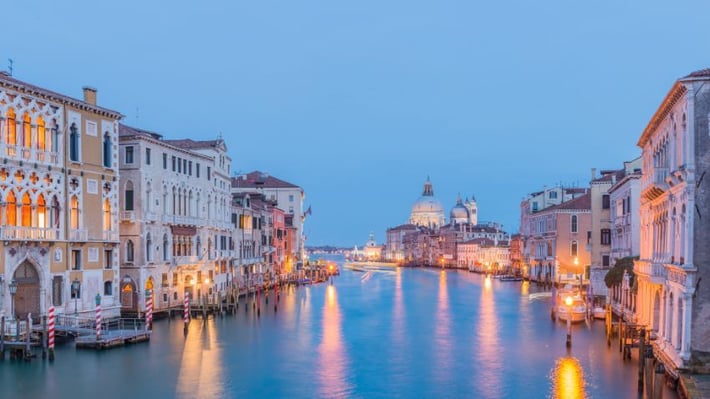
Grand Canal in Venice, Italy
For managers, specialists, or trainees only that are transferred from a branch of a corporation overseas to an Italian branch, there is a special ICT visa. You must have worked for the company in question for at least three months to qualify for this visa, and your employer must furnish documentation to the Prefecture that demonstrates this. Once you enter Italy, you must inform the local Prefecture of your presence in order to receive your residence permit.
An ICT visa can be issued for up to one year and can be extended to a maximum of three years for managers and specialists. Trainees cannot have their visas extended.
Self-employed workers and freelancers can also apply for temporary residency in Italy. The first process is applying for authorization for self-employed work. In order to qualify for this authorization, you will have to show evidence of financial means and meet any legal requirements with regard to licensure or entry into professional registers. Then, if that is approved, you can apply for a self-employment worker visa in order to enter Italy. Once you have arrived in Italy, you must register with the police to get your residency permit.
A self-employed worker's visa can be granted for up to two years and renewed after that.
This visa is often called the "Italian Golden Visa," and you can obtain it with a modest investment of only €250,000 ($249,136 USD) in a startup company that is operating in an innovative field, a charitable donation of €1,000,000 ($996,545 USD) to a nonprofit organization, an investment of €500,000 ($498,272 USD) in shares of an Italian company, or the purchase of €2,000,000 ($1,993,090 USD) in Italian government bonds one can secure an investment visa. The applicant must be in good health and without a criminal record.
In order to apply for the investment visa, you must complete an application online with all accompanying documentation. The documents required are:
Once you are approved, you can enter Italy, acquire your residency permit, and make your investment or donation in full within three months. Your residence permit will be valid for two years but can be extended for another three, after which you will be able to apply for permanent residency.
Related content: Why Getting Your Panama Permanent Residence Is So Important
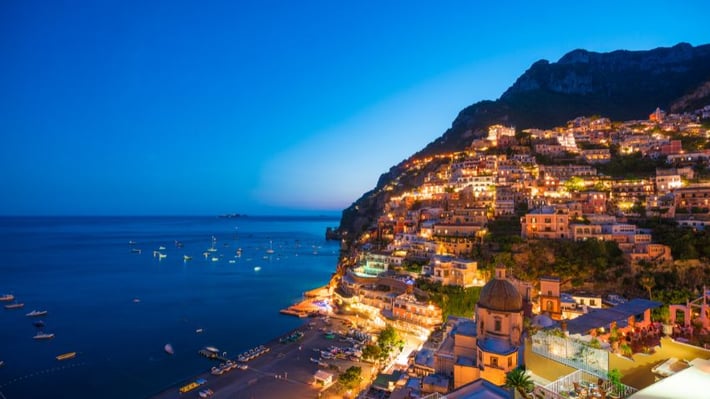
The Amalfi Coast, Italy
After five years of living in Italy on temporary residency permits, individuals have the right to apply for permanent residency. This right also extends to the applicant's spouse, parent, or children. Permanent residency is not available to those who entered Italy for humanitarian reasons.
In order to apply for permanent residency in Italy, you will need the following documents demonstrating:
You will need to stay in Italy at least 183 days out of the year to maintain your permanent residency. It is important to note that it can take at most a few months to process the application and obtain your residency documents if approved.
There are numerous benefits to being an Italian permanent resident. You are granted virtually all of the rights of an Italian citizen. You will have the right to travel throughout the EU with only your identity card and be able to work and/or start a business in Italy. I can offer you my assistance and expertise in these investments as well as with obtaining your second residency and citizenship.
Italian permanent residency is a pathway to citizenship. After five years of permanent residency, with no more than ten months total spent abroad, you can apply for citizenship. The requirements are:
The Italian passport currently ranks 4th in passport strength and allows for visa-free travel in 144 out of 197 official countries worldwide. You could go to the authentic Oktoberfest in Munich without obtaining a German visa and then travel to Norway to see the Northern Lights before returning to Italy. Most other countries will allow an Italian passport in with an e-visa or visa on arrival.
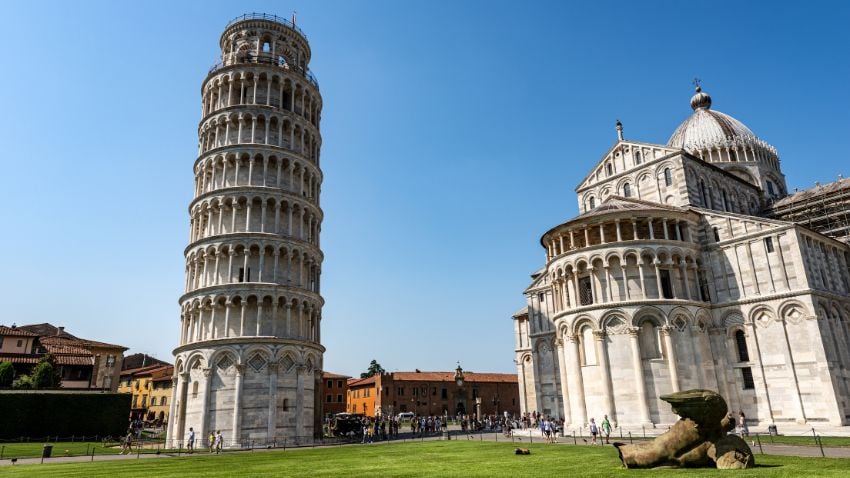
The Leaning Tower of Pisa, Pisa PI, Italy
Italy has many great options for many different purposes. For the people who enjoy travelling to different countries, you can travel all over the EU using only your identification card, and outside of Europe, it can vary from visa-free travels to easy-to-obtain entry permits. Local travellers can enjoy all the amazing historical, and romantic spots to explore with their family and spouse. I would recommend the Italian residency by investment visa to those looking for a relatively low-requirement European residency with a straightforward process.
If you want the best intel from the expat world, including profitable offshore opportunities, little-known tax-saving strategies, and hard-won insights on immigration, passports, and Plan-B residencies, all delivered to your inbox every single week, then join our daily correspondence, EMS Pulse®. Currently enjoyed by over 84,000 expats and expat-hopefuls worldwide. Fill in the form below to join our newsletter free:

Written by Mikkel Thorup
Mikkel Thorup is the world’s most sought-after expat consultant. He focuses on helping high-net-worth private clients to legally mitigate tax liabilities, obtain a second residency and citizenship, and assemble a portfolio of foreign investments including international real estate, timber plantations, agricultural land and other hard-money tangible assets. Mikkel is the Founder and CEO at Expat Money®, a private consulting firm started in 2017. He hosts the popular weekly podcast, the Expat Money Show, and wrote the definitive #1-Best Selling book Expat Secrets - How To Pay Zero Taxes, Live Overseas And Make Giant Piles Of Money, and his second book: Expats Guide On Moving To Mexico.

Honduras’ newly elected president, Nasry Asfura of the conservative National Party, was sworn in on January 27, 2026. The election, held on November...

For a growing number of Americans, cost-of-living math no longer works. Housing feels harder to reach, everyday costs keep climbing, and long-term...

Costa Rica has become one of the most popular expat and digital nomad destinations in Latin America, known for its natural beauty, relaxed lifestyle,...